In golfing terms at least, 2019 could hardly have been worse for Paul Dunne. Form abandoned the Wicklow man and a run of unimaginable results saw him lose his European Tour card. Currently social distancing in Alabama where he’s also recovering from a hand injury that put the exclamation point on a season to forget, we caught up with the former European Tour winner to dissect his 2019 form and discover why the future’s so bright for the Greystones swinger. Interview by Peter Finnan. Written by John Craven.
Full podcast HERE
Even the most eternal optimists would struggle to extract the positives from the current COVID-19 pandemic that has brought the world as we know it to a collective standstill. And yet, somewhat perversely, one man who could legitimately make a case for silver linings, albeit if he was violently pushed, would be Greystones golfer, Paul Dunne.
To say the outbreak of coronavirus was unwelcomed would be a ridiculous understatement but in Dunne’s case, it’s coincided with his longest spell of fairway turmoil in his young career to date and it just might help him come through a period of adversity relatively unscathed.
Teeing up his 2019 season already a European Tour winner at the 2017 British Masters, Paul Dunne looked as safe a bet as any to regain his card, if not add to his winning tally as he looked to become a genuine contender for Padraig Harrington’s European Ryder Cup side this term. A year on and he’s still struggling to wrap his head around the fact that he’s relinquished his grip on a European Tour card he’s clung to ever so tightly since coming through Q-School in 2015.
“It was a year where everything went the opposite of what we were hoping for and I still felt we’d got ourselves into a position where I was unfortunate to be on the wrong end of the card line,” said Dunne, speaking from isolation in Alabama.
“Obviously it’s a competitive game and nobody feels like they’re the player who’s going to lose their card but I don’t feel that if I play any way normal that losing my card should be a threat.”
And who could argue with him? Following his maiden winning season in 2017, Dunne already looked a seasoned pro. In 2018, he finished 56th in the Race to Dubai making 15 cuts in 23 events to comfortably regain his card. Yet, at this stage thoughts of retaining playing privileges never entered Dunne’s head. He was looking skyward, not back and with his stroke average only up 0.5 over the season to 70.94 compared to 70.21 in 2017 – a season that included besting Rory McIlroy down the stretch with a final round 61 at Close House – it’s no wonder he was blindsided by what was to come in 2019.
To the untrained eye, Dunne started out much the same as before. From January through May, he made seven of 10 cuts with top-5s arriving in Australia and Denmark but results were papering over the cracks. From June, his struggles were accurately reflected in a run of just two cuts made from 14 events as his Race to Dubai ranking plummeted. So, looking back on a year where it all went wrong for one of Ireland’s brightest talents, what specifically did go wrong?
“I struggled with my iron play all year,” Dunne says without hesitating.
“Even the good finishes I had – I was grinding them out. I just got steeper and steeper. It was a frustrating year because I knew what the issue was and all I was doing was putting the effort in to try to move it where I needed to move it – shallow things out – and nothing was working. As it got worse the frustration obviously builds and as I tried to shallow it, I got steeper.”
“If I look back, none of my statistics were that far off where I was before except for my strokes gained approach play which just went to the dogs. That was the biggest thing for me. Even if I went out and drove the ball well, it wasn’t that I wasn’t hitting it close with the irons. I wasn’t hitting it on the planet and that put my short game under a lot of pressure.
“I spent the year trying to chip and putt to save par and it was frustrating but it’s one of those things you try ride out as best you can but things all came at the wrong time. I found myself having to try without the luxury to take some time off. It’s easy for someone to say I think you just need a couple of weeks off and come back but then if you know you have a big stretch to come back to after those two weeks, then you’re probably better off trying to put in the time to lay a better foundation but that wasn’t working either.
“It’s the first time where I’ve been able to see what the problem was, put the right steps in place that I thought would work and they just didn’t. Hopefully that’s the last time that happens.”
As weekend rounds continued to slip by, the unthinkable of losing his card never entered Dunne’s psyche. Upon reflection, it wasn’t a case of looking over his shoulder before it was too late, rather what he could’ve changed in the early throes of the season where coming out on the right side of fine margins would’ve cemented a more fruitful fate.
“I never really thought I was in danger of losing my card,” Dunne admitted.
“It was never on my mind that much. It was kind of an interesting one because all year I played really poorly. Looking back to Perth [World Super 6] early in the year should’ve done it for me. I came third there in the Match Play event and Ryan Fox won it.
“It was only a six hole match and I remember missing a couple of little short putts against him. They were quite uncharacteristic. Even if one of them goes in I could’ve won that tournament or even if I came second instead of third, that was my card there. Or things like Denmark where I finished fourth but it was a five-way tie so all those things add up.
“But even the events where I had good finishes, I was fighting my way through them. I was playing terribly in Denmark, hitting the ball awful but managing to get it round. I didn’t have a week all year where I went into it with any sort of confidence. I felt like things didn’t go my way. I felt like my game was in as bad a shape as it could’ve been and still at the end of the year, I didn’t think I was going to lose my card. It feels like it was as bad as it could’ve gone so then I’m not really that worried about my future because it’s not going to be like that forever.”
Perhaps one of the main reasons the former Walker Cup star never saw his relinquished status coming is because even the European Tour’s projections for the points tally necessary to keep your card pointed in Dunne’s favour.
“That was maybe the worst thing that happened,” Dunne says. “I forget exactly what it was but say it was 380 or something to keep your card with a few tournaments left and I was already 20 or 30 ahead of that so in my head, I wasn’t playing to keep my card, I was playing to find my game to give myself chances to win.
“I knew if I wanted a good run at a post-season, that I really needed to get my finger out and find form. I was thinking more along those lines until the last two weeks when everyone who was struggling started to play well and things started to go the other way. But look, it’s only just another year, a snapshot in the career and hopefully it’s not a big deal. It certainly doesn’t feel like a big deal when this pandemic thing is floating about the world.”
Indeed, it’s a testament to Dunne’s ability that his game stood up as well as it did given the adversity he was suffering, the like of which he’d never experienced on a golf course. The European Tour’s flagship event at Wentworth in September was arguably peak blues. We’d caught up with Dunne in the lead-up to the tournament and he told us how light was flickering at the end of the tunnel. He was making strides in his practice but any optimism was swiftly squashed with a first round 80 in Surrey.
“My confidence was low,” Dunne reflected. “I knew what I needed to work on but it wasn’t ready to take on the tournament rounds. I had to be in a really strong mindset to grind my way through which is what got me through the weeks where I played well but it’s very difficult to sustain that through a season if you’re struggling because it’s very mentally demanding. You need to be in the right mindset for it but some weeks I just wasn’t.”
The BMW PGA Championship was one such week with Dunne following his first round 80 with a second day 77 to post a 13-over par 36-hole total. It would prove to be Dunne’s last tournament with long-time caddie Darren Reynolds but the catalyst for the split wasn’t simply Dunne’s form, rather the timing of a very serious eye condition for Reynolds and Dunne’s need for a fit and fired-up bag-man to get him through his fairway struggles.
“It was more difficult on him than it was on me, not because of the golf or the relationship but he was going through his own health problems – he was having some serious health issues with his eye – so I think it was more important for him to take some time off and get that sorted,” Dunne said.
“I needed someone who was going to be fully focussed on my issues at the time and it would’ve been unfair for me to expect Darren to be that focussed on me. What he was dealing with was much more serious than what I was dealing with so him getting that sorted was more important.
“Darren and I have a great relationship. There was no fall-out. No reason why that ended other than just the timing of both our issues, one significantly more important than the other.”
The golfing gods conspired against Dunne’s development last year and a hand injury at season’s end would prove the cherry on top of a cake of unfortunate events. Of course it was hard to swallow, with time to reflect in isolation, it still is but it’s not like he’s suddenly fallen out of love with the game that’s been so good to him. Sure, it felt like hard work but it always has for Dunne, ever since he identified his talent for golf as an aspiring teen.
“I think it felt like a job since I was 15 to be honest,” Dunne revealed. “It felt like a job that I loved doing but I very much approached it since I was a teenager as something to get better at. Not that I always thought it would be my job but to me, that’s the thing that I did – I played golf. I wanted to get better at it, I wanted to be the best I could be at it and I don’t think the way I practiced has changed that much since I turned pro to when I was an amateur.
“If anything, I probably practiced better in college than what I do now because I had more time to practice. Obviously as a pro you’re travelling and playing more but last season definitely wasn’t the first time it felt like a job.
“What I will say, when the injury came, it took me longer to miss golf than I thought it would. The toll of the year took more out of me than I thought it did. Normally when I have a couple of weeks off I’m dying to get out and play and I don’t know if it was just dealing with what happened the year before, the carry on of frustration or being Christmas time at home and the weather not being good but it took me a while to come out of it – six to eight weeks to have any desire to play.
“Obviously, I couldn’t hit a shot anyway but even to have that desire to watch TV and imagine myself being there and what would’ve happened if I could’ve been playing and I suppose that was the only thing that surprised me. But you live and learn, move on and hopefully it’s something we can bounce back from when all this is over and my hand heals up and we can kick on like we did a few years ago.”
It will very much feel like life’s come full circle for Dunne when he does get the green light to play again. He’ll have limited starts to impress, striving with every stroke to earn that return ticket to the Promised Land. Whether his injury heals before the European Tour gets the go ahead to resume a now vastly depleted playing schedule post COVID-19 is uncertain but Dunne remains an interested observer, boosted by the knowledge that because of coronavirus, he’ll no longer be alone in returning to the fairways undercooked after a long layoff.
“I’m aware of what’s going,” he says. “All the tournaments that are cancelled and moved around so it’s on my mind what schedules will look like but we haven’t heard anything. It will most likely be difficult to get into tournaments. The only thing I know for sure is when I do come back, I’m going to come back in a position ready to play well.
“It’s almost like turning pro again. I’m going to get less starts than I would have most likely, so the starts I’m given I’m going to need to do something with them. It’s like being back in that position again at the very start. I know I’m going to get opportunities and they’re not going to last forever so I’ve got to take them.
“That’s the big goal now, to get myself into a position where I’m ready to hit the ground running. I guess there’s silver linings to everything but I’m going to be coming back from a pretty long layoff, but with this whole pandemic thing, so will everyone else.”
When Dunne reappears on European Tour fairways, although he’ll be adopting a Rookie mentality, the now 27-year old Tour winner will be anything but a fledgling pro. No surprise then that Dunne’s also banking on his experience gained over the last five years to give him an advantage over his rivals in what promises to be a frantic schedule of events when play resumes – golf’s hunger games – as the heat in the cauldron atop the pro ranks increases like never before as players jostle for position amongst the Tour’s hierarchy.
“It’s the nature of having less status,” Dunne concludes.
“If I want the opportunities that other people are going to have then I need to play better than they do to get them. The only advantage I have now is I know the standard very well. I’ll go into the tournament knowing what numbers are going to be good and what won’t be enough.
“It’s very clear what’s standing in front of me, it’s only a matter of me going out and doing it. That’s where my focus is long term. But for now, my focus is just on getting through every day like everyone else without watching too much Tiger King!”

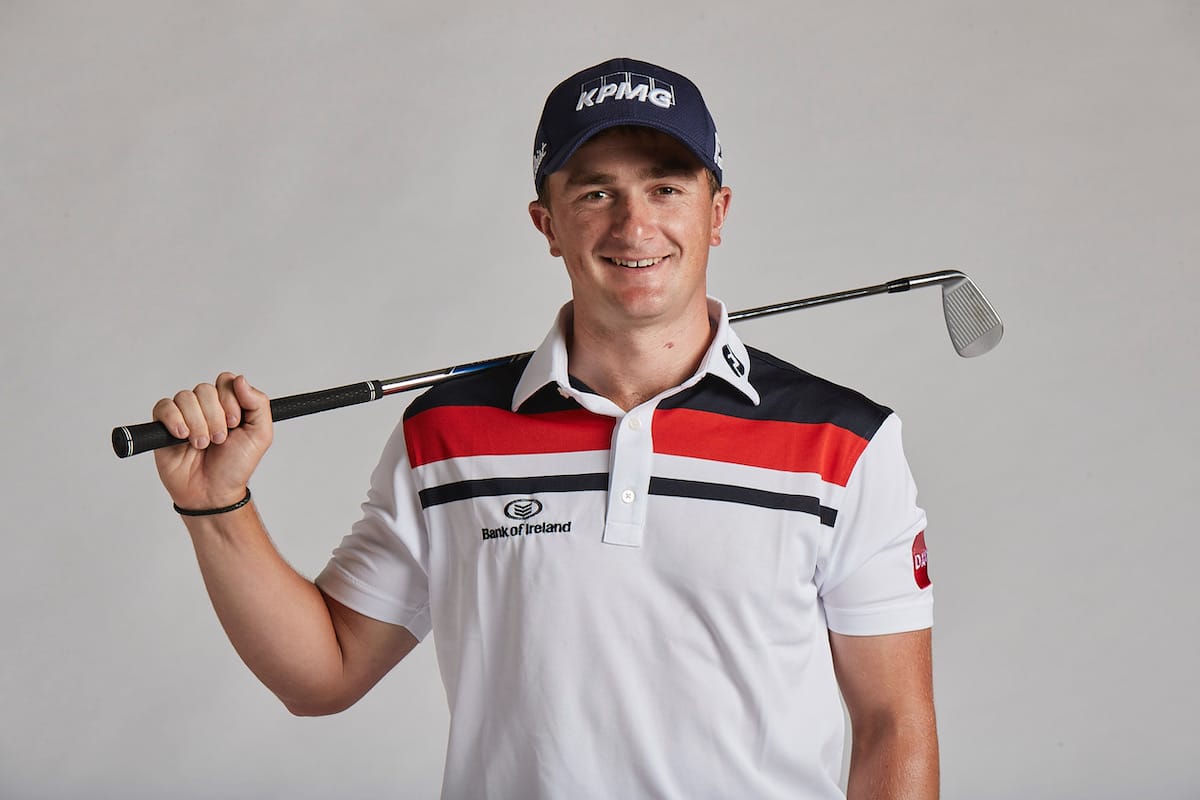





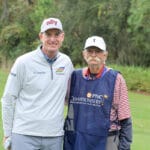

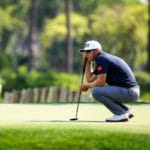

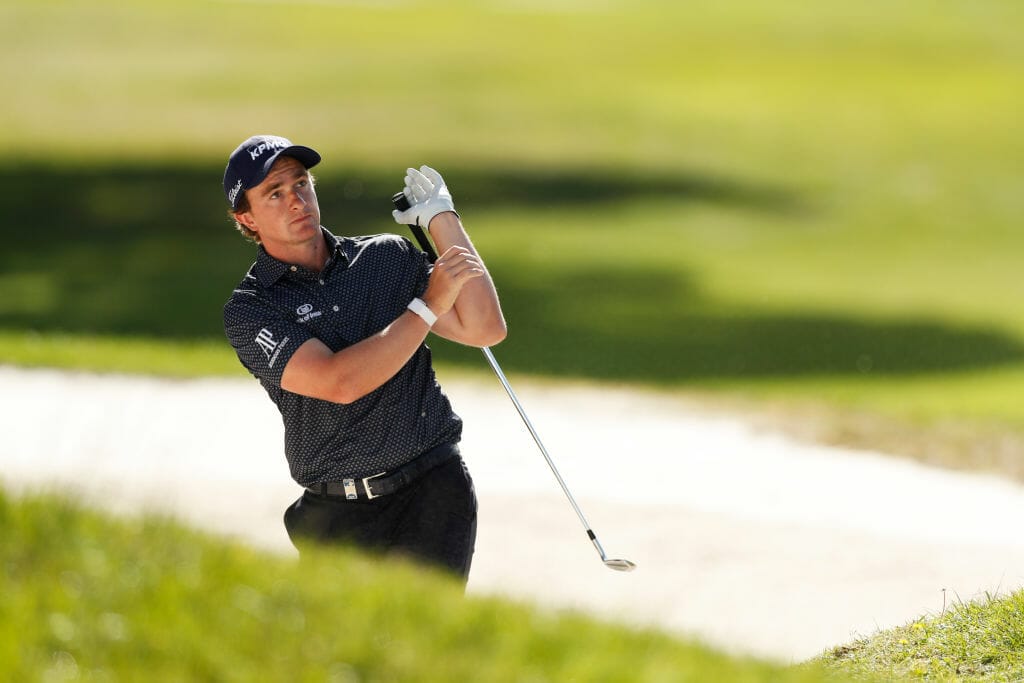
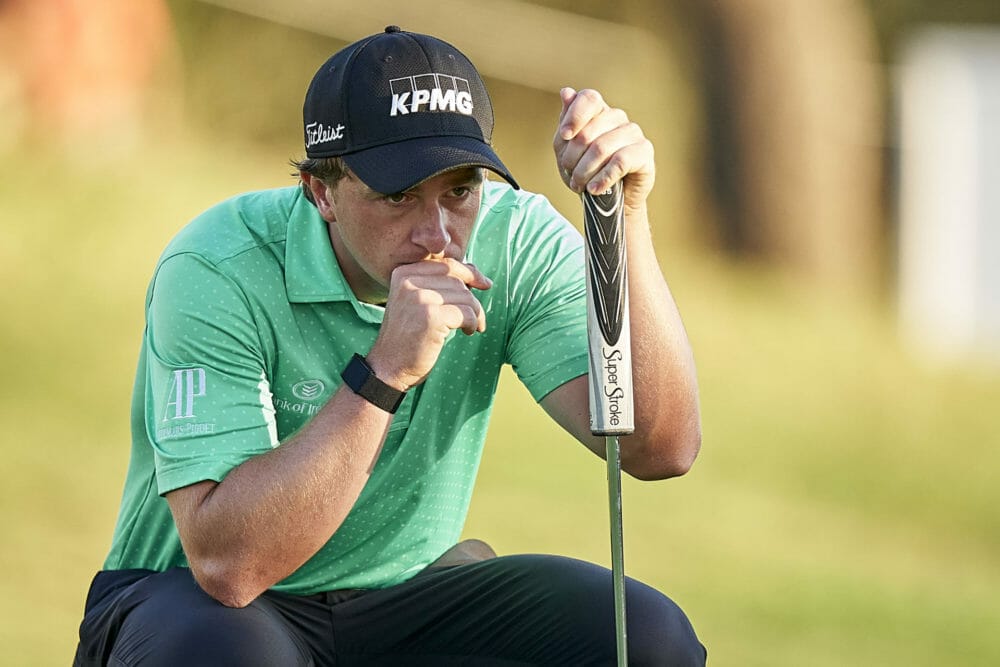


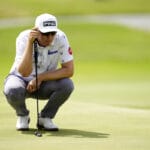









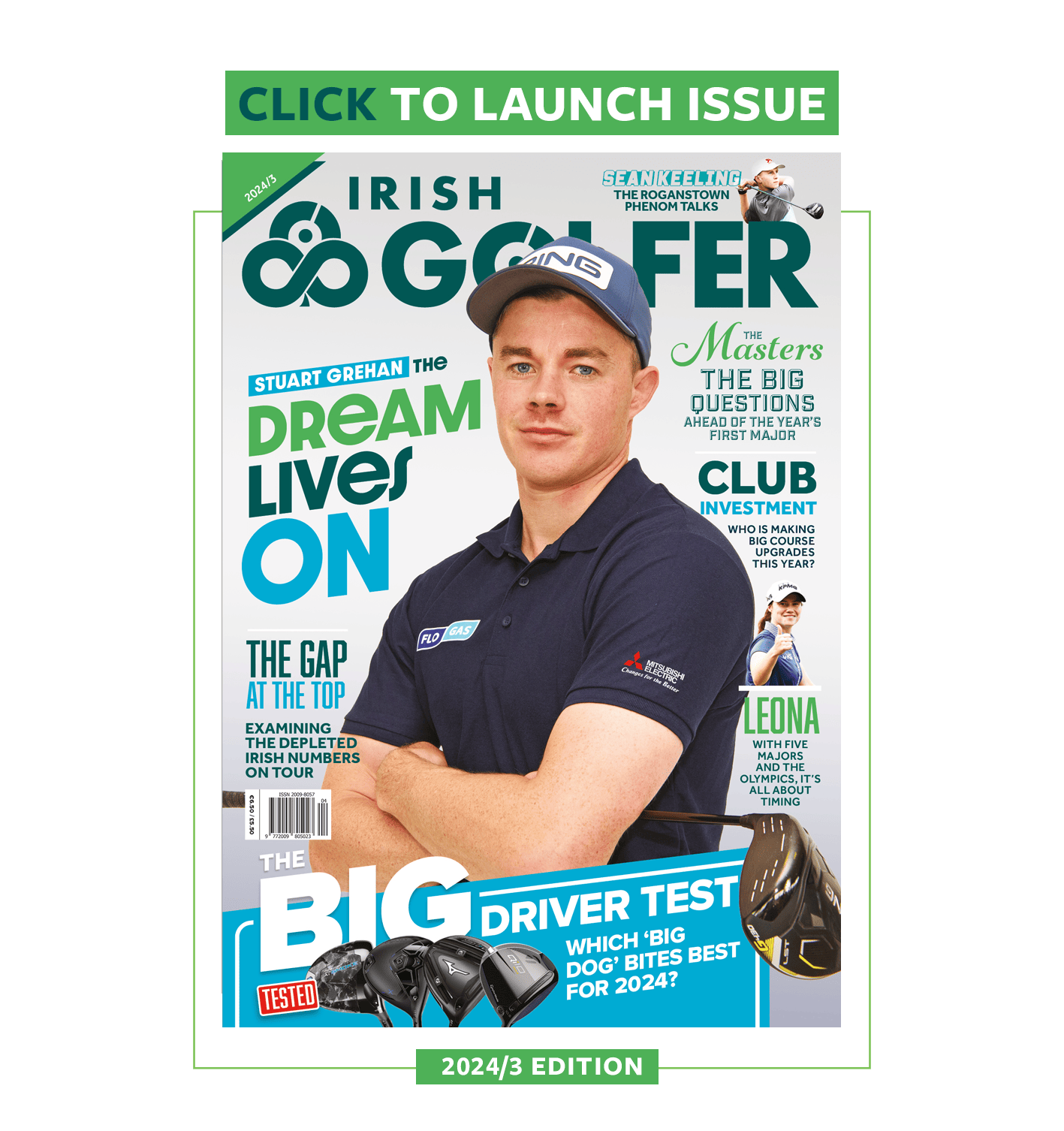
Leave a comment